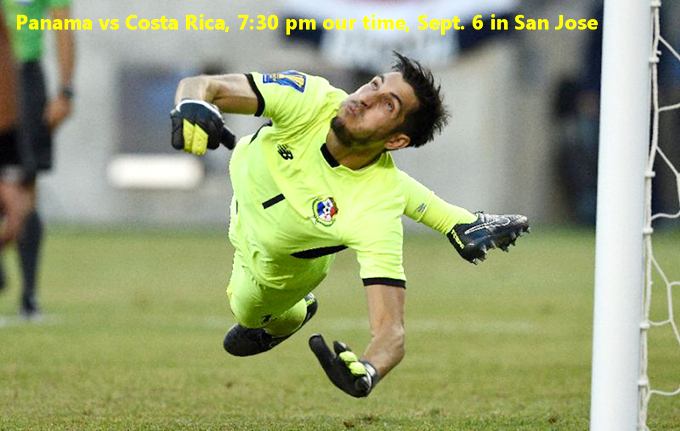
Cosas para hacer ~ Things to do
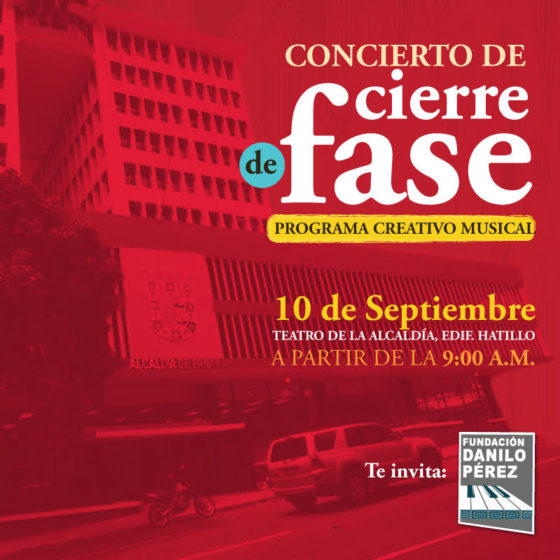



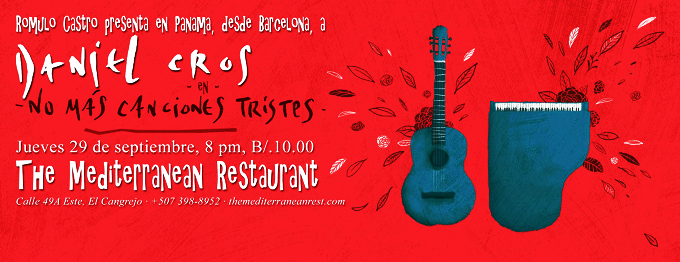
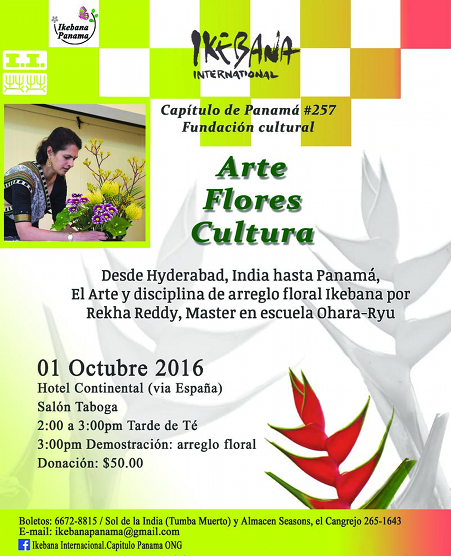
~ ~ ~
These announcements are interactive. Click on them for more information.
The Guardian, Hanjin bankruptcy causes turmoil in the shipping world
Fosters.com, Melting Arctic opens new frontier
CBC, Nunavut port seeks Chinese investors
Eco-Business, China’s trans-Amazon railway stokes forest fears
World Highways, Dragados in running for Panama bridge deal
Video, Luis Concepción vs Kohei Kono
Video, Panamá 2 – Jamaica 0
FIFA.com, Two tickets left in CONCACAF scrap
ANP, AIG licita la Red Nacional Internet 2.0
Bloomberg, Spain proposes Panama leaks minister Soria for World Bank job
ALAI, El poder de las farmaceúticas y el derecho a los medicamentos
Smithsonian Insider, Health risks of eating turtle eggs could help species
Mongabay, How humans create as well as destroy species
IDG, OpenOffice coders debate retiring the project
The Motor Report, Mercedes to market “personal assistant” cars
BBC, Lucy probably died in a fall from a tree
El Siglo, Cae comisionado por caso sicariato
TVN, Confirman condena de Gustavo Pérez
Telemetro, Balacera en discoteca en Vía Argentina
La Estrella, Los casos de Martinelli agudizan la crisis en la Corte Suprema
TVN, Adames prometo amplio debate sobre educación sexual
International Cry, Panama’s police assault indigenous dam protesters
Video, Protesta en la Universidad de Panamá
The Costa Rica Star, Tico police meet US ambassador on Panama border
Página 12, Golpe consumado
Americas Program, Honduran human rights groups oppose US aid
BBC, Hundreds of thousands in rival Caracas demonstrations
The Atlantic, Which Republicans oppose Trump?
Reuters, FBI detects breaches against two state voter systems
Christian Science Monitor, Does electronic voting put the US election at risk?
Rolling Stone, The GOP’s stealth war against voters
Washington Post, High court blocks use of NC vote suppression law
Boff, Cómo hacer frente al fundamentalismo
Fischer, Europe’s last chance
Focus Taiwan, Panama City and Kaohsiung to be sister cities
La Estrella, Joseph Archbold: chef campeón

Booker T & the MGs – Green Onions
https://youtu.be/_bpS-cOBK6Q
Otis Redding – I Got Dreams To Remember
https://youtu.be/Ooqqj6q1MeU
Percy Sledge – When a Man Loves a Woman
https://youtu.be/jHS8LAqHyHs
Little Richard – Good Golly Miss Molly
https://youtu.be/TqHQqb5ot74
Tina Turner – River Deep, Mountain High
https://youtu.be/ULw1RHHPv5g
The Chiffons – One Fine Day
https://youtu.be/aKe0XKfAnv8
The Ronettes – Be My Baby
https://youtu.be/jrVbawRPO7I
Little Eva – Loco-motion
https://youtu.be/eKpVQm41f8Y
Mary Wells – My Guy
https://youtu.be/r1M5eEJeT38
The Supremes – Where Did Our Love Go?
https://youtu.be/izzKUoxL11E
Gladys Knight & The Pips – Midnight Train to Georgia
https://youtu.be/IdfZnWsps34
The Temptations – Just My Imagination
https://youtu.be/M5Z9-QCmZyw
The Four Tops – Are You Man Enough?
https://youtu.be/faaxsHyyIzY
The Impressions – People Get Ready
https://youtu.be/l04yM7-BWbg
Aaron Neville & Linda Ronstadt — 1996 Concert at the White House
https://youtu.be/whc35X1R5k4
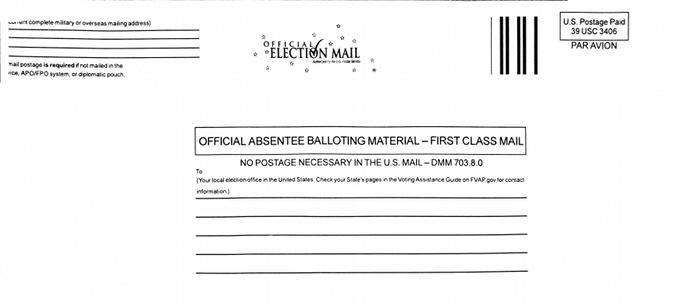
Are you an American who takes US citizenship seriously? Deadlines to exercise your rights and fulfill your duty rapidly approach. Consular officer Rolando Diaz, a Texas political activist before he came to the US State Department, explained it to several dozen Americans — expatriates, naturalized citizens, people who were born dual citizens in Panama as the children of US citizens — at an August 31 meeting at the US Consulate. It was one of several presentations by the embassy and consular staff to bring the community up to date about this cycle’s procedures for voting from abroad.
Diaz referred to federal laws about voting from abroad — for example, government-subsidized free postage for voting materials mailed through US diplomatic missions — but emphasized that each state has its own rules about voter qualifications and deadlines to register and get ballots back to local election officials in the United States. How complicated can it get? “Texas has one election law for the entire state,” he noted, “but many local officials with their own interpretations of what that means.” So how to sort it out? Diaz recommends one of the several online sites to help US citizens vote from abroad, the Federal Voter Assistance Project. State by state, this service that was primarily established for US military personnel and dependents overseas but now also serves all Americans living overseas, makes it easy for you to register to vote, request an absentee ballot or check the status of your ballot.
First, you need to determine where to vote. Generally this will be by absentee ballot to the last place where you resided in the USA. But there are special considerations for American citizens who never lived in the United States. There are 37 states that allow a US citizen who hasn’t lived in the USA to vote in that state if one of his or her parents resided or was domiciled there. How “residency” and “domicile” are defined are matters of state law, but by federal law a person who only votes for federal offices — President of the United States, US Senator or US Representative — can’t be declared a resident of the state in which she or he casts those votes for purposes of state income tax liability.
A few states allow you to vote by email or fax. Many more states allow you to register to vote and order your ballot electronically and some of these will email your ballot to you. With most states you have to mail a printed and filled out ballot back to local voting officials by snail mail. Deadlines to register and request your ballots start coming in early October. In most US jurisdictions a ballot needs to be at the local clerk’s office by election day — November 8 this year — to be counted. Some want the ballots back earlier than that, some will count a ballot that comes in late but was mailed on or before election day. A few states have same-day voter registration and for overseas voters will accept a registration, ballot request and filled-out ballot in a single mailing.
What is the usual bottleneck for Panama, especially for those of us who live in the Interior? By federal law there is the Federal Write-in Absentee Ballot (FWAB). Those who have registered to vote and requested their ballots from the states and who have not received their ballots can fill out and send in one of these ballots. As a matter of law they are perfectly valid, although there will surely be some local election officials who will toss them in a provisional ballot box, the contents of which they will not count. In a contested close election, these votes preliminarily cast aside are likely to be examined and argued over by lawyers for the rival campaigns. In this era of widespread and sometimes flagrantly unlawful vote suppression, the FWAB of someone who was not sent a ballot because some committee using bogus information convinced some clerk that a properly eligible voter should be disqualified may become a court case. If that happens one of the drawbacks to casting a write-in ballot on the federal form is that the right to a secret ballot is waived by using that procedure.
There is also a standard federal form, the Federal Post Card Application (FPCA), to register to vote and request a ballot. But look up the information for the state where you will be voting first, because you may be able to submit this or some equivalent state form online and save the time and effort entailed in mailing in the FPCA form.
State voting laws are an ever moving set of targets. The day that Diaz gave his presentation at the consulate, an evenly divided US Supreme Court upheld a lower court ruling that struck down North Carolina’s racially motivated vote suppression laws. Not long before that the governor of Virginia, having been struck down by the state courts on a blanket move to end the ban on voting by convicted felons who have served their time, individually commuted sentences to restore the voting rights of some 13,000 Virginians who had been convicted of crimes — and on the day of Diaz’s presentation Republicans in Virginia’s legislature moved to hold the Democratic governor in contempt.
One of the most common vote suppression tactics is the voter ID law. Since the last presidential election 17 states have passed versions of these, two of these states have had those laws struck down and most of the other state laws of this sort are being challenged in court. One typical requirement is that only a state driver’s license will suffice. In Alabama they did that, and then closed all of the offices where licenses can be obtained or renewed in counties with black majorities. Some states have refused to accept Veterans Administration IDs from disabled vets who are physically unable to drive. It can be expected that some states, or some local officials, will demand expensive to obtain ID from overseas voters. The cost of renewing a US passport, or of travel to the USA to get or renew a driver’s license, could reasonably be argued to be an unconstitutional poll tax if it is made a requirement for voting. Perhaps your challenged FWAB will be the case that decides this. But in the event that an election official in the USA demands a valid passport as voting ID, the US Consulate here will consider that an “emergency” on a par with a death in the family back in the States, so as to allow you to obtain or renew a US passport on an expedited basis.
You can go to window 14 of the US consulate to mail your registration, ballot request or filled-out ballot right now. They close at noon, however, so you have to go in the morning. For security reasons it has been decided not to have a mailbox in front of the consulate. (Jihadis, Aryan resistance fighters et al will have to deposit their letter bombs elsewhere.)
Diaz recommended that voters get their ballots to the consulate by October 28 to be reasonably sure that election officials in the various states will receive them by election day.
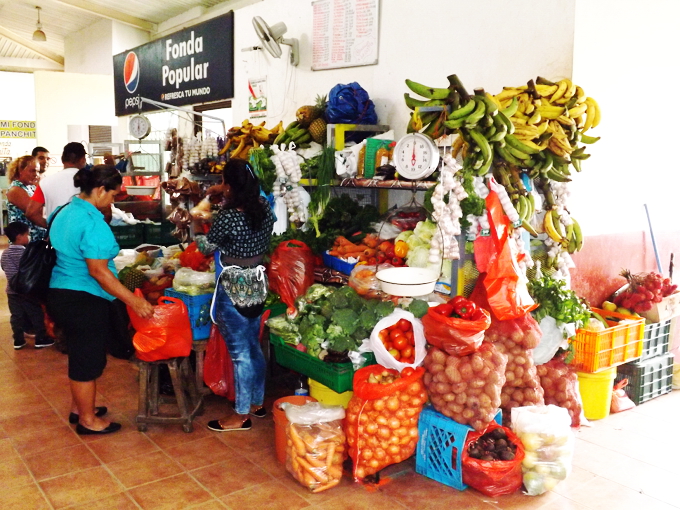

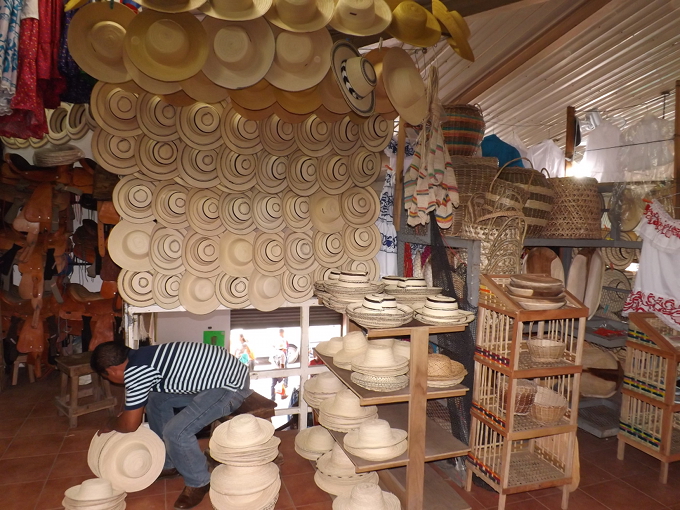
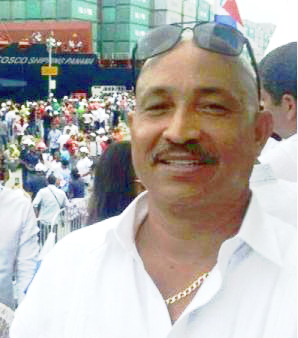
The US addiction problem is as bad as it ever was, although Panama’s market share is probably down as cocaine smuggled through here from South America is less popular up there as the demand for opioids — mostly synthesized in the USA — explodes. But the “War on Drugs” continues and is a great success for those who sell the paraphernalia or find regular employment. We hear about drug seizures in Panama with monotonous frequency. When in the last week of August police seized 305 kilos of cocaine, $129,000 in cash, five vehicles and nine persons (a mix of Panamanians and Colombians) it was a tiny blip in the data stream. But the raids kept coming, in the Colon province neighborhoods of Ciudad del Sol, Margarita, Urbanizacion Praderas in San Isidro, Puerto Pilón and Viento Frío. These raids netted five more people, $2,218, four firearms, three vehicles, and in the house in Viento Frio, that area’s representante on the Santa Isabel city council — Hidalgo Gentil Jaramillo Davis — and a suspected drug trafficker known by the nickname of Chichi Loco. The local politician, a PRD member, made the series of raids noteworthy enough, and then on top of that the Minister of Security revealed that National Aeronaval Service (SENAN) Second Lieutenant Francisco Salazar Flores was also under arrest.
Is that all? Not hardly. The things that were announced without going into detail were and will be a bit more sensational yet. There is a legislator, not named but identified by several media as a PRD member, who is to be charged, along with at least one other law enforcement officer — among four “high level government functionaries” is how it was put. Security Minister said that it had been a seven-month investigation in which eight principal organizers of the racket had been identified but only five of whom have been captured. Everyone involved is identified as either Colombian or Panamanian. The basic racket was drugs by sea from Colombia to and through Guna Yala, then packed onto containers for shipment by a variety of land and sea routes to points north. Among the Panamanian “civilians” charged the names of Damaris Jackson Quiroz, Eduin Eduardo Forbes Menchaca, Luis Alberto Jessie Memcha and Marvin Eduardo Mena Ayarza were revealed. Some of the surnames are also shared with some prominent figures from Colon. (This Colon-born reporter, however, is not related to Ms. Jackson Quiroz.)
President Varela said that more arrests and revelations are coming in the case and called on all political parties to purge the drug traffickers from their ranks. We shall see who falls, but PRD and Cambio Democratico politicians from coastal Colon have been notoriously mobbed up in more or less the racket alleged here for many years. For the public official whose aim in life is to get rich, that area offers few other opportunities.
So is this the golden opportunity for a president who’s down in the polls to show his rectitude and resolution and rebound in public prestige? Probably not. As the names of other public officials come out the same judicial jam-up that has the Martinelli gang running out the calendar with endless motions and claims of immunity will most likely increase public disenchantment with the entire system and with a president who has broken his promise to convene a constitutional convention that might sweep away some of the structural incentives for corruption.
As an elected official Mr. Jaramillo enjoys electoral immunity from investigation and prosecution, which would have to be lifted by the Electoral Tribunal for the case to proceed. But is it already too late? Former electoral magistrate and the PRD candidate for vice president in 2014, now the head of the party’s disciplinary tribunal, Gerardo Solís, has blasted prosecutors, police and the Varela administration for violating Jaramillo’s special politician’s civil rights. But in another ongoing high-profile case against a PRD member, the extortion prosecution of Aldo López Tirone, the Electoral Tribunal just ruled that any electoral immunity he may have had as a candidate for party office is voided because he was caught in the act. So what were the circumstances of that raid in Viento Frio? Were police in hot pursuit of a suspect, or of contraband? Were they looking for someone or something else and did they stumble across Jaramillo? Lawyers may be arguing about the details of the arrest for years. In any case, for the matter to proceed the Electoral Tribunal would probably have to consider whether Jaramillo’s immunity ought to be lifted.
And when they come for the legislator to be named later? She or he would have electoral immunity and if that’s lifted by the Electoral Tribunal then the Supreme Court rather than the ordinary prosecutors and lower courts would be in charge of the case, including the investigation. Surely the defense would argue that the deputy was improperly investigated without the required supervision of the high court, and surely the accusers would say that there was an ongoing investigation of other people that happened to turn up said deputy. There it would face the stall that has been imposed on the 15 cases against Ricardo Martinelli and most of the other political corruption cases of recent vintage. It’s Exhibit A for a new constitution that makes sweeping and in some cases retroactive changes and that replaces the entire court membership in one fell swoop. (The Colegio Nacional de Abogados is actively campaigning for a constitutional convention, but their proposal has yet to be written and they seem a very long way from having the forces at their disposal to gather the more than a half-million petition signatures needed to force the issue.)
The individual and organizational identities of the Colombians said to be involved have not been revealed, nor has there been any claim or denial of foreign involvement in the investigation. There are all sorts of criminal organizations running drugs through Panama, but the most notable Colombian faction operating along the coasts of Colon in recent years has been the Clan Usuga, a direct lineal descendant from the AUC paramilitary death squads that were informally yet quite closely allied with the United States in the 1990s as part of Plan Colombia.
Never having been admitted, Washington would probably not see fit to deny the Plan Colombia history with the AUC. (They haven’t forthrightly admitted the US roles in creating the Manuel Antonio Noriega and Osama bin Laden monsters either.) But to the extent that this case is about the drug lords’ corruption of SENAN, it would represent another US failure, as more than most Panamanian law enforcement agencies that outfit is funded by and its members vetted by the United States. But of course, American justice also sometimes arrests home-grown crooked cops, customs agents, prosecutors, elected officials or judges in US drug investigations. Especially if US intelligence is part of this drug investigation it could then be spun that rather than corruption in SENAN being part evidence of a drug war failure, the exposure of corrupted Panamanian law enforcement officers is a drug war triumph.
Figure that this case will be the stuff of more spectacular claims and news attention for some time to come.
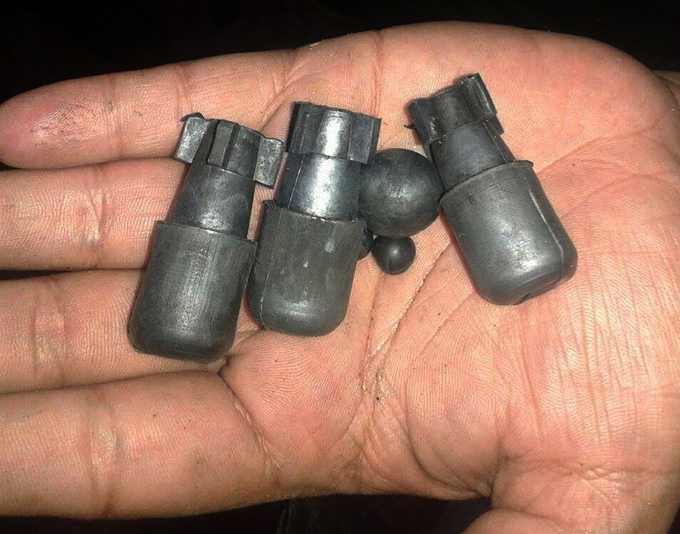
La presa para la hidroeléctrica sobre el Tabasará está casi llena y hay un acuerdo firmado, que no todos respaldan y en el que no todos han participado. Pero el agua que llena la vasija y la tinta de las firmas no borran los desacuerdos, aunque si algunos asentamientos y casas. La presa de Barro Blanco viene fraguándose desde el Gobierno de Martín Torrijos, 10 años de enfrentamientos y reclamos que no impidieron la construcción de la gran represa yel inicio de su llenado hace apenas unos días. Reclamos que terminaron en un acuerdo firmado con el Gobierno y parte de las autoridades Ngäbe el 22 de agosto del que no todos se sienten parte. Las divisiones dentro de los propios dirigentes ngäbe y el paso del tiempo que ha alargado y enquistado un problema que no es nuevo en Panamá -la lucha de los pueblos indígenas contra megaproyectos, especialmente hidroeléctricas que invaden sus ríos- mantiene viva la herida y desemboca en nuevas protestas. Protestas que se han recrudecido en las últimas horas debido a enfrentamientos con la policía que han terminado con varios heridos civiles en la población de Gualaquita (Bocas del Toro). Una comunidad que organizaciones como la Alianza para la Conservación y el Desarrollo (ACD) dicen que está “sitiada” por los agentes, que mantienen a los ngäbe confinados, sin electricidad y sin asistencia médica para los heridos. No ha sido la única represión, varios estudiantes de la UP también han sido heridos en Panama capital tras protestar en Transismica contra la hidrolectrica y lo acontencido en Gualaquita.
Que el acuerdo no era el cierre de la herida lo pusieron de manifiesto las protestas y las piedras lanzadas contra el presidente Juan Carlos Varela el día de la firma con la cacica Silvia Carrera, en Llano Tugrí. Que no se trataba unicamente de un ‘grupo radical minoritario’, como dijo el presidente, lo demuestra que las protestas han continuadoy la tensión y la violencia ha provocado heridos entre la población civil.
ACD, que ha pedido la intervención de la Defensoría del Pueblo, asegura que la Policía Nacional no solo ha ocupado la comunidad Ngäbe de Gualaquita, sino que los enfrentamientos con la población civil han terminado con varios heridos graves. La asociación cita a media docena de ellos (Gilma Selles, Eliseo Selles, Felicia Miranda, Felipe Miranda, Elicia López y Martín Abrego) y muestra especial preocupación por Adolfo Miranda, “gravemente herido en su rostro incluyendo la posible pérdida de la vista”. ACD denuncia que “los heridos aún no han recibido ninguna atención médica ya que no se atreven a salir a la carretera por miedo a las decenas de Policías que mantienen sitiada a la comunidad”. En conversación telefónica la dirigente Ofelia Carrizo también alertó a la asociación de que había recibido varias amenazas por parte de miembros de la Policía Nacional. En las redes sociales, Carrizo, dirigente Mama Tada (la religión sincrética y propia de los Ngäbe-Buglé), narró como las unidades del Control de Multitudes de la Policía Nacional trataron de despejar la protesta que mantenían utilizando gas pimienta y balas de goma.
ACD también reporta “actos abusivos por parte de la Policía incluyendo vandalismo de tiendas, decomiso de celulares y el rocío indiscriminado de gas a las viviendas, lo que obligó a que las personas salieran de sus casas y huyeran a los montes”. También informan de la interrupción temporal del suministro de energía eléctrica.
La respuesta del Gobierno ha sido alegar que las fotos de indígenas heridos son viejas, de otros incidentes, si bien Ricardo Miranda, presidente del Concejo Nacional de la Juventud Ngäbe responde en twitter con más fotos y acusando de mentir al ministro de Seguridad Alexis Bethancourt.
La narración de los hechos, los escenarios, las consecuencias, recuerdan mucho a otros enfrentamientos entre población indígena y policía que derivaron en heridos y muertos. ACD recuerda actuaciones similares de la Policía Nacional en Charco La Pava (2008) y San San Durui (2009). Pero en las hemerotecas están también los dos muertos y 800 heridos en Bocas del Toro en 2010 o la represión en San Felix y Llano Tugrí en 2012 que se saldó con dos muertos en las protestas contra las hidroeléctricas y la minería en la comarca Ngäbe. Y a eso se suma la pelea de los naso contra la represa de Empresa Públicas de Medellín en Bonyic o Chan 75 en Bocas del Toro, por servir de ejemplo.
Y mientras el agua sigue llenando el vaso de la represa de Barro Blanco. Ricardo Miranda, advierte de que si no se suspende ese llenado las acciones de protesta y cierres de calles se van a extender de forma indefinida en diferentes puntos del país. Asegura que más de 100 familias están afectadas con inundaciones tras el inicio de llenado de otra de las áreas del embalse y han tenido que abandonar sus hogares. Hoy están en la calle, dice, mientras el 15% que será invertido en obras sociales dentro de la comarca, como establece el acuerdo firmado en agosto, tardará 15 años en hacerse efectivo.
~~
Mientras se recrudecen la protestas ha comenzado el llenado de la represa. Hasta el momento (1 de septiembre) se han inundado tres casas, el cementerio de la comunidad de Quebrada Caña, los petroglifos y vías de acceso hacia la comunidad cultural de Kiad. A ello se suman los bosques de galería y la principal fuente de agua de esta comunidad. Asociaciones y líderes ngäbe reclaman que se frene el llenado para evitar la inundación de las casa ubicadas en el centro de la comunidad de Kiad.
La Red de Derechos de Panamá ha emitido un comunicado en el que pide que se suspenda el llenado del embalse hasta que se aclare y se atienda a las comunidades directamente afectadas; que el Gobierno atienda los reclamos de los afectados y busque formas de diálogo y que se investigue la acción policial en Gualaquita y la situación de los heridos.
No es la primera vez que esta red alerta de la situación que está generando la represa de Barro Blanco. En junio visitaron las comunidades afectadas y se pronunció sobre los “daños ambientales irreversibles y las graves violaciones a los derechos humanos de que están siendo víctimas las comunidades indígenas y campesinas, cercanas a la hidroeléctrica”

The cure for a taxing allergy
by Sam Pizzigati — OtherWords
Millions of families live in constant dread of what an unexpected encounter — with a bee or a food additive or even a dye — could bring. One slip, and breathing could quickly become difficult, or a heartbeat dangerously low.
Severe allergies, untreated, can kill.
But nobody has to die from an allergic reaction in our modern world. We have medical devices that can keep children and adults alike safe.
The most familiar of these — the EpiPen — works as an auto-injection. By jamming a “pen” into their thigh, sufferers can dispense an exact dosage of epinephrine, a cheap generic drug that can relieve extreme discomfort and severe symptoms.
Medical authorities now recommend that folks with severe allergies have two EpiPen devices available at all times. That used to be a relatively affordable proposition. Not anymore.
In the United States, the EpiPen wholesale price for a two-pen set has jumped from under $100 in 2007 to over $600 this past May. One Virginia mom recently tried to fill a prescription for two EpiPen two-packs and the cost totaled $1,212. Her health insurance, with a $4,000 deductible, wouldn’t have paid a cent of that.
Outside the USA, EpiPens remain readily affordable. In France last year, two EpiPens cost allergy sufferers about $85.
So what’s driving up the EpiPen cost in America? Corporate greed.
This latest greed grab began in 2007 when the drug company Mylan bought the EpiPen franchise and started raising the price amid a huge new marketing campaign. The profit margin on EpiPens soared. Revenue from EpiPen sales soared, too, from $200 million to over $1 billion.
Also skyrocketing: the compensation of Mylan’s top five executives. Over the past four years, they’ve pocketed a combined $247.2 million. Last year alone, Mylan executive chair Robert Coury pulled down $17.7 million, CEO Heather Bresch $18.9 million, and president Rajiv Malik $19.9 million.
In effect, Mylan execs have been emptying the pockets of allergy sufferers to make themselves considerably richer.
We treat muggers who empty people’s pockets as criminals. Maybe we need to think of Mylan’s top execs as criminals, too. The first step in a criminal investigation: identify motive and opportunity.
The Mylan execs certainly have opportunity. We’ve allowed the drug industry to become a playground for corporate quasi-monopolies, enabling them to essentially charge whatever they want. They also have motive. The more they gouge consumers, the greater their personal windfalls.
Drug company executives didn’t have that same powerful motive in 1977, the year the EpiPen first appeared. Back then, corporate executives paid 70 percent of their income over $200,000 — that’s about $800,000 in today’s dollars — in federal tax.
Tax rates that high dampened the incentive for price gouging and other outrageous CEO behaviors. With the IRS standing in the wings, ever ready to tax away ill-gotten gains, corporate execs spent more time doing their jobs and less time conspiring to become incredibly rich.
Today, corporate officials pay taxes at less than half the rate they paid in the 1950s. Our political system seems to have developed an allergy to taxing high incomes at high rates.
An EpiPen for that could save us all from a dangerous reaction.
Sam Pizzigati, an Institute for Policy Studies associate fellow, co-edits Inequality.org. His latest book is The Rich Don’t Always Win: The Forgotten Triumph over Plutocracy that Created the American Middle Class, 1900-1970. Follow him on Twitter @Too_Much_Online. Distributed by OtherWords.org.
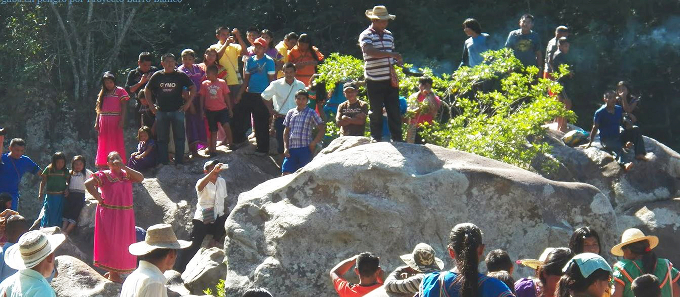
How much hypocrisy will the market bear?
These days the superstition of market worship is the de facto religion of most developed countries, one that they preach and enforce around the world. Panama has joined the ranks of countries that embrace it. So is it time that someone nails 95 theses on the door of the Presidencia, if not the White House?
Panama’s most important day-to-day headlines, particularly those that are about our laws and the institutions in charge of carrying them out, are dominated by hypocrisy at the moment. We have a dictatorship’s constitution which, as a product of General Torrijos’s Revolutionary Process, provides that there shall be no privileges or discrimination based on social class. In practice we see constant assertions of statutory immunity by the political caste and phalanxes of lawyers interposing obstacles that grant impunity to those of the social class who can afford that sort of thing. Then there are all these treaties that were sold as guarantees of property rights and “an even playing field for all.” But what consideration has been given for the property rights of the people of Kiad, who have been evicted without compensation for the Barro Blanco Dam? How even has been the field of their dealings with Honduran thugs and their array of European and Panamanian partners, backers and employees?
Barro Blanco’s promoters filed an environmental impact statement that was replete with the most egregious misrepresentations, and it was accepted by government officials without questions until much later. It set off social conflicts in which the entire Panamanian economy suffered millions of dollars of losses, blood was shed and people were dispossessed. Perhaps the worst of all in the long run, ancient petroglyphs thought to be holy by a religion that much of the Ngabe nation embraces are being destroyed. Those evicted from Kiad were held prisoner without charges in a Catholic Church facility. The seeds of religious conflict have thus been sown by the government. But the lawyer who filed that bogus environmental statement still has a license to practice law. Neither those who filed nor those who accepted the misrepresentations on the government’s behalf have been called upon to personally account for their actions. Why? Because President Varela says that he must uphold international treaties — but not the ones that protect indigenous sites. He cites conventions that protect the banks, even though those don’t actually protect institutions which invest in frauds that they should have discovered.
It’s not the rule of law, let alone of God’s law. It’s the worship of money, and a matter of how much hypocrisy the market will bear.
Replace the Cuban Adjustment Act
The foreign ministers of Panama and eight other Latin American countries have asked for a meeting with US Secretary of State John Kerry to discuss the annoying effects of a 1966 US law, the Cuban Adjustment Act, on much of the Western Hemisphere. It’s hard to imagine that in an election season much will change in Washington, but this policy needs to change.
The Cuban Adjustment Act provides that Cubans — and Cubans alone — who manage to set foot on US soil without proper permission can’t be summarily sent back to their country of origin like citizens of other countries. US immigration law isn’t quite that simple, for Cubans or anyone else, but the rule of thumb and the commonly held belief in Cuba is that once in the USA, a Cuban is there to stay for the rest of his or her days.
It’s an outdated bit of Cold War legislation. These days the Republican Party, in whose ranks most of the Cuban-American exile leadership has operated for many years, has turned against Cubans along with all other Latin Americans. One might think that with the thaw in US-Cuban relations this bit of legislation would be vulnerable to repeal. The case for ending the double standard gains force when one considers the problems that it creates for countries along the circuitous routes by which undocumented Cubans seek to sneak into the United States.
Other Latino groups in the United States would have reason to let the Cuban-Americans swim alone against anti-immigrant tides and the currents of history. The policy makes unfair and unreasonable distinctions. The Cuban government is not a democracy and the Cuban people are not prosperous, but Cuba does not have the death squad terror that stalks places like Mexico and Honduras and the government in Havana isn’t notably more corrupt than those of many other Latin American neighbors. Poverty is the lot of many Latin Americans, not just Cubans. Any notion that Cubans are inherently better people than other Latin Americans would be ridiculous, although the fact that Cubans tend to be better educated than their Latin American counterparts would be relevant for US immigration policy — or for Panama’s thinking on the subject, were it rational.
However, there are reasons for the United States to give would-be Cuban immigrants a special break. For starters, the Cuban-American community is the oldest US Hispanic community. St. Augustine, Florida, was a Spanish-speaking town before any English settler arrived in North America and Florida was incorporated into the United States before the annexation of Texas or the Mexican Cession brought many Mexican-Americans into the USA by conquest. The long-established Cuban-American community is willing and able to take in new arrivals and has done so with great success for a long time.
The United States needs a new immigration law anyway, and it’s reasonable to take historic relationships into account in the drafting of such legislation. Panama also has special ties with the United States that ought to be taken into consideration.
There are things short of controversial legislation that the United States can immediately do to deal with the present problem of massive uncontrolled Cuban migration. This is not the first inconvenient Cuban exodus toward the USA, and let us recall measures that were taken in the past.
Those were temporary and partial measures, though. What’s needed is a more comprehensive US immigration reform that among other things replaces the Cuban Adjustment Act.
Bear in mind…
Yasser Arafat

Warren Zevon — Veracruz
https://youtu.be/HcFlFLbYo8c
The Corrs – Little Wing
https://youtu.be/ytrPcztllzo
Café Tacvba – Eres
https://youtu.be/0AtsoFxe96M
Rita Coolidge – We’re All Alone
https://youtu.be/SZ-oJl48iYw
Leonard Cohen – Hallelujah
https://youtu.be/bFIPlUQDPzo
Elton John – Sacrifice
https://youtu.be/6EljX5-Wgbo
Carlos Vives – La Gota Fria
https://youtu.be/ucDzRYejL60
Joan Osborne – What Becomes of the Broken Hearted
https://youtu.be/kC24fdGFpfI
Sin Bandera – Maldita Suerte
https://youtu.be/S4BMU9bZFoo
WAR – The World is a Ghetto
https://youtu.be/fLIaUdMzBtM
Zoé – Labios Rotos
https://youtu.be/qG_hTK8Pw0k
Ben E. King – Stand By Me
https://youtu.be/CPYQEJFLhLU
Tracy Chapman & Luciano Pavarotti – Baby Can I Hold You
https://youtu.be/HvRpsckX7qE
Sia – Alive
https://youtu.be/D9bmyrT_sxs
Sly & Robbie meet Nils Petter Molvaer – Warsaw Summer Jazz Days 2015
https://youtu.be/f702zmB5en4